Question And Answer
Publications
Articles, publications, books, tools and multimedia features from the U.S. Institute of Peace provide the latest news, analysis, research findings, practitioner guides and reports, all related to the conflict zones and issues that are at the center of the Institute’s work to prevent and reduce violent conflict.
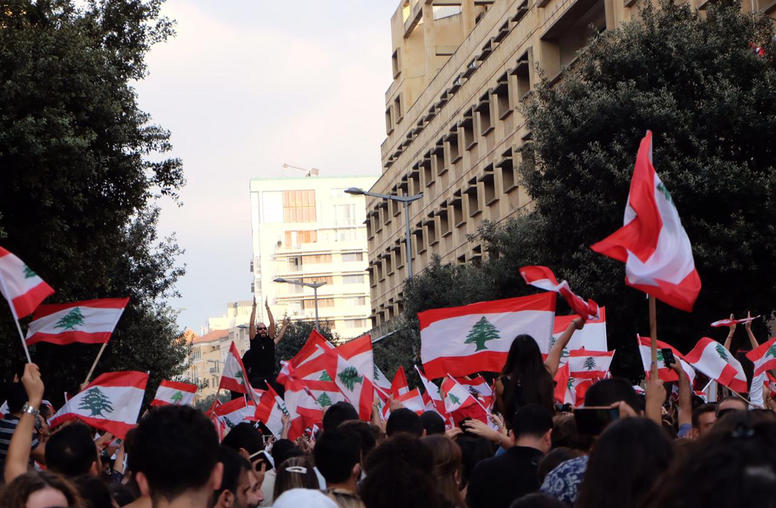
A massive protest movement emerges in Lebanon. What does it mean?
Over the last week, mass protests broke out across Lebanon, signaling citizens' mounting discontent with their government and economy. Millions of Lebanese of all backgrounds, including Sunnis, Shiites, Christians and Druze from across the socio-economic spectrum hit the streets to express their exasperation with the country’s endemic corruption. The government announced on Monday emergency economic reforms in an effort to assuage protesters. Will it be enough? USIP’s Elie Abouaoun takes a closer look at what sparked the protests, the impact on Lebanon’s highly polarized politics, and possible scenarios for the next few weeks.
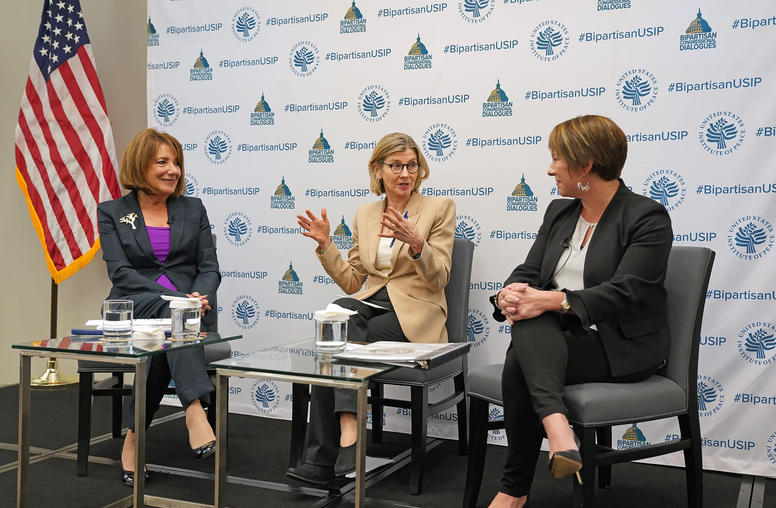
To Protect Afghan Women’s Rights, U.S. Must Remain Engaged
It’s been over a year since the U.S., led by Amb. Zalmay Khalilzad, opened talks with the Taliban aimed at ending the 18-year war. Over that year, Afghan women have demanded a seat at the negotiating table, worried that the hard-won gains made over the last two decades could be in jeopardy. Even with the peace process stalled, “it is vital that the U.S. remain engaged” to ensure that Afghan women’s rights are protected, said Rep. Martha Roby (R-AL) last week at the U.S. Institute of Peace’s latest Bipartisan Congressional Dialogue.

In Tunisia, Democratic Elections Were Easy—Now Comes the Hard Part
After two rounds of presidential elections which sandwiched parliamentary elections, Tunisia has accomplished something that has eluded every other country in the Middle East and North Africa: repeated free and fair democratic elections. And while that milestone may renew the faith of many in the trajectory of Tunisia’s democratic transition, the outcome of these elections is a harbinger of more difficult times.
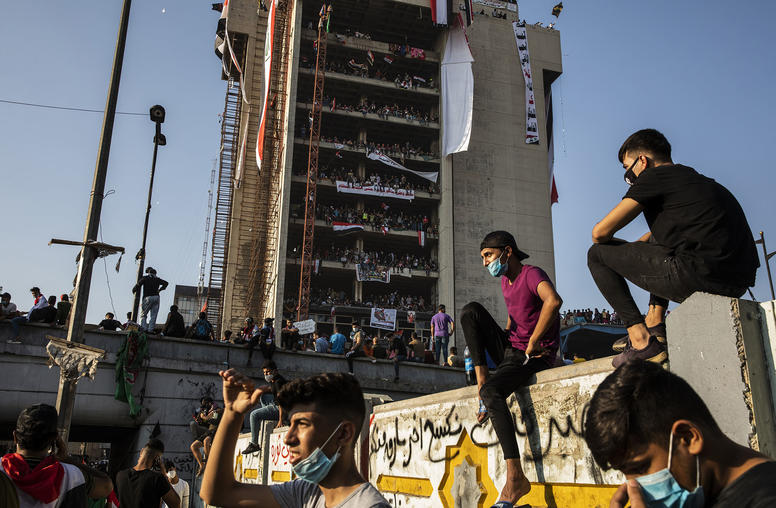
As Protests Continue in the Street, Iraq Reaches a Crossroads
Tens of thousands of Iraqis have been protesting in Baghdad and southern provinces against the failure of the Iraqi government and the political class in delivering basic services, providing jobs, fighting corruption, and more. Iraqi security forces and armed groups reportedly linked to Iran have used lethal force in response to the protests, leaving over 260 dead and over 10,000 injured. As the protests have progressed, demands have expanded to include calls for regime change, the resignation of Prime Minister Adel Abdul Mahdi, early elections, pushing back against Iranian influence, and accountability for killing peaceful protesters.
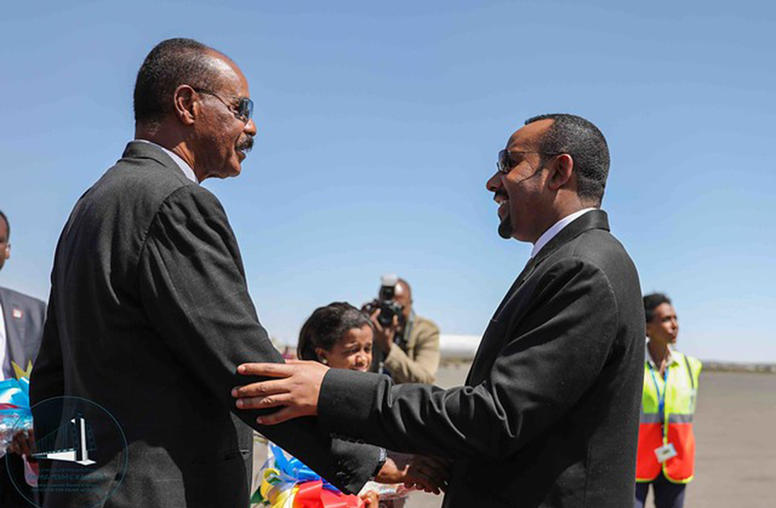
Nobel Laureate Abiy Ahmed’s Next Peacebuilding Project Should be at Home
Ethiopian Prime Minister Abiy Ahmed has remained in the news in the weeks following his 2019 Nobel Peace Prize—but not for the reasons you’d expect. An estimated 86 people have died in violence sparked by an alleged assassination attempt against a prominent political opposition leader. This tragedy is symptomatic of Ethiopia’s fragile transition and demonstrates the urgency for Dr. Abiy to focus his energies at home to deliver a peaceful transition for the 105 million Ethiopians counting on his leadership.

Iraq’s protesters just ousted a prime minister. Now what?
Iraq faces a new political crisis and the risk of more violence after its prime minister, Adel Abdul Mahdi, resigned under pressure from two months of mass demonstrations by youthful protesters. More than 400 people have been reported killed amid authorities’ forceful attempts to disperse the youthful protesters, who say a corrupt elite is failing to provide basic government services and share the country’s wealth with citizens. But Abdul Mahdi is stepping down only after Iraq’s most prominent Shia cleric withdrew his support. USIP’s Sarhang Hamasaeed and Elie Abouaoun discussed where the crisis could lead.
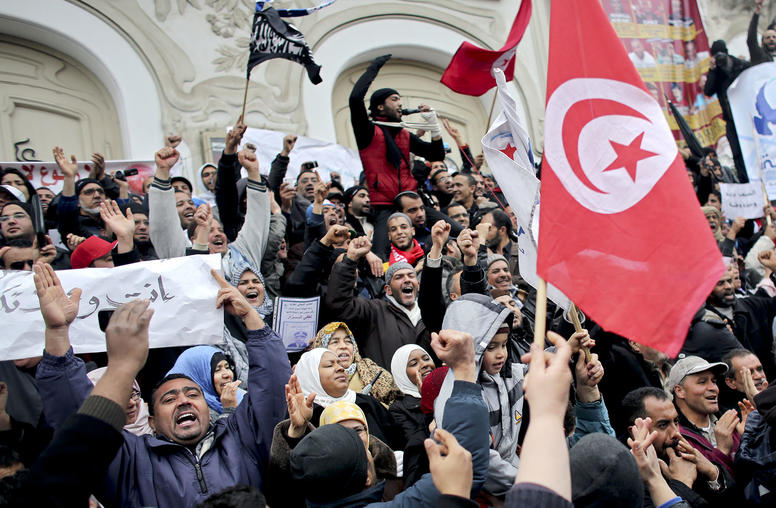
Tunisia’s transition has unfinished business. Can Ennahda lead the way?
Fresh off a busy election season, Prime Minister-designate Habib Jemli is in the process of forming Tunisia’s next government. That government will have the daunting task of addressing Tunisians’ deep disenchantment with the political class and its failures to live up to the promise of the 2010-2011 uprising that led to the overthrow of longtime dictator Zine El Abidine Ben Ali. “The big problems confronting Tunisians have not been given enough importance” from the country’s political parties, said Abdelfattah Mourou, the first presidential candidate of the Ennahda party, during an interview at USIP.
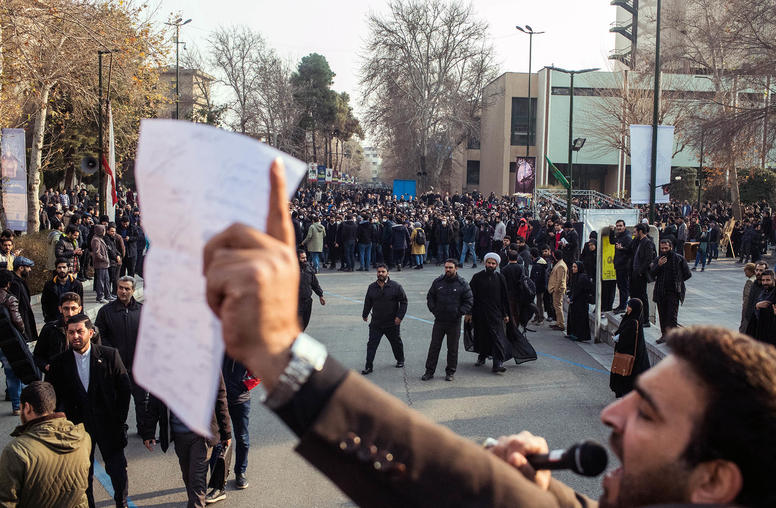
The Latest on Iran’s Evolving Protests
Iran has been rocked by a series of developments in recent months, from the mass protests over raised fuel prices to the killing of powerful Iranian commander Qassem Soleimani. Over the weekend, protesters returned to the streets, spurred by the military’s mistaken downing of a Ukrainian passenger jet. As in past protests, like 2009, the government has met demonstrators with a draconian and violent response. USIP’s Garrett Nada and Maria Stephan explain how the protests have evolved over time and how demonstrators could use nonviolent tactics against the repressive regime.
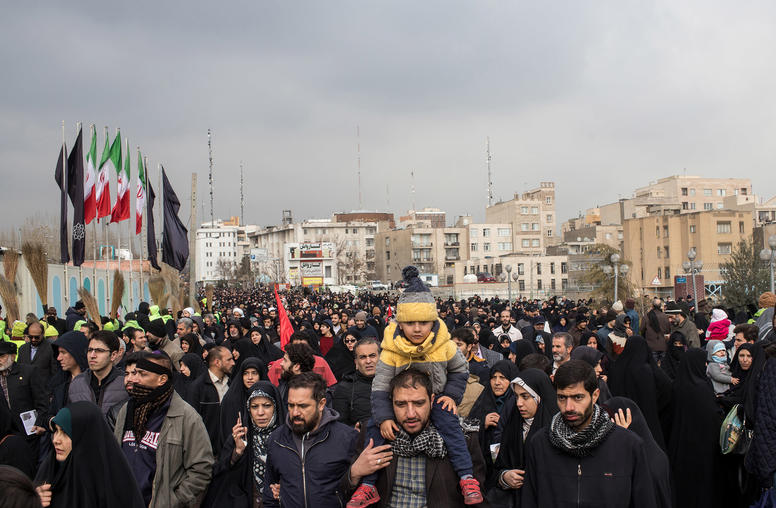
Iran’s Parliamentary Polls: Hardliners on the Rise, Reformists Ruled Out
Iranians head to the polls on February 21 to elect their next parliament. Following the violent suppression of protests in November and the accidental shooting down of a Ukrainian passenger plane in January, many are deeply disillusioned with Iran’s political system. Most reformist candidates have been barred from competing in the election, leaving voters with virtually no alternative to hardliners. The elections come as U.S.-Iran tensions are simmering after the killing of Iranian General Qassem Soleimani and as the country’s economy is foundering. USIP’S Garrett Nada looks at what issues are on the top of voters’ minds and how foreign policy will factor into the vote.
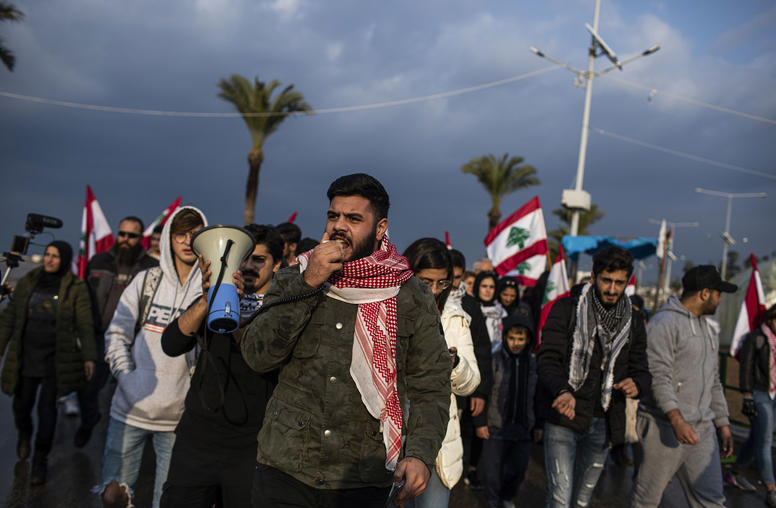
Lebanon’s Protests Take a Troubling Turn During Dire Financial Crisis
Coinciding with Lebanon’s worst financial crisis in decades, popular protests in the country have been ongoing for more than four months. The protests were initially sparked by a government tax on the popular WhatsApp messaging service. They quickly evolved into Lebanon’s largest, sustained peaceful protest movement. The demonstrations were notable for being geographically diverse and starkly anti-sectarian. Women and youth have played outsized roles in the protests, which emphasized a focus on civic engagement. Recently, however, the protests have taken a troubling turn, with episodic clashes between protesters and security forces.